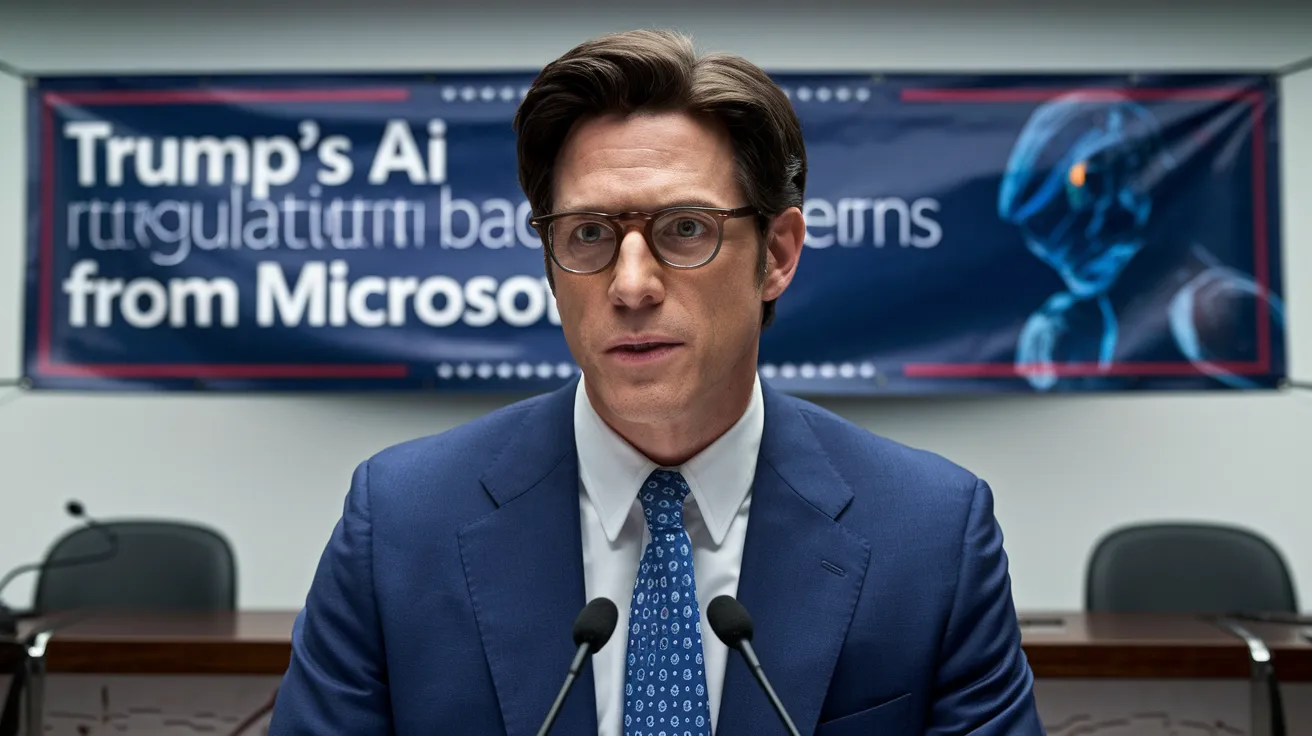Trump’s AI Regulation Ban: Concerns from Microsoft

Warning Against AI Regulation Ban
Microsoft’s chief scientist, Dr. Eric Horvitz, has expressed significant concerns regarding Donald Trump’s proposed ban on state-level regulation of artificial intelligence (AI). He suggests that such bans could inhibit progress in the field, stating that they would not only slow the advancement of AI technologies but also hinder the practical applications of these innovations. Horvitz, a former adviser to President Biden, emphasized that effective guidance and regulation are essential for fostering advancement in AI.
Details of the Proposed Ban
The Trump administration’s proposed legislation aims to impose a 10-year moratorium on state laws that would limit or regulate AI systems. This move is partially motivated by fears that the United States might fall behind China in the race for human-level AI, as echoed by comments from various tech investors and officials. Notably, JD Vance, the U.S. Vice President, has stressed the urgency of maintaining an edge in AI capabilities, showcasing a nationalistic approach to this competitive landscape.
Concerns About AI Misuse
Dr. Horvitz raised alarms about the potential for AI to be misused, highlighting risks associated with disinformation and malicious applications, particularly in sensitive areas such as biological hazards. His comments come amid major lobbying efforts by Microsoft alongside tech giants like Google, Meta, and Amazon, seeking to enact a ban that aims to standardize AI regulation across states.
Contradicting Perspectives
While Horvitz’s remarks underscore a need for regulation, reports indicate that Microsoft is part of a collective push to restrict state-level legislation on AI. This has created a paradox where the company’s leading scientist advocates for regulation while the organization simultaneously lobbies against it. The proposed legislation is part of Trump’s broader initiative, labeled the “big beautiful bill,” which seeks to streamline regulations as part of the upcoming Independence Day agenda.
Experts Weigh In
At a seminar led by the Association for the Advancement of Artificial Intelligence, additional voices like that of professor Stuart Russell echoed the necessity for caution in AI development. Russell questioned the wisdom of deploying technologies that pose significant risks, such as potential extinction scenarios. His sentiments reflect broader concerns that unregulated AI development prioritizes short-term profits over long-term safety and sustainability.
Investment in AI and Future Predictions
Microsoft has committed $14 billion to OpenAI, the organization responsible for developing ChatGPT. This investment highlights the growing corporate interest in AI’s long-term potential. Sam Altman, CEO of OpenAI, forecasts that within five to ten years, we could witness the emergence of highly advanced human-like robots, further fueling the urgency for a responsible approach to AI development. However, predictions for achieving artificial general intelligence (AGI) vary widely, sparking ongoing debates about the timeline and risks involved.